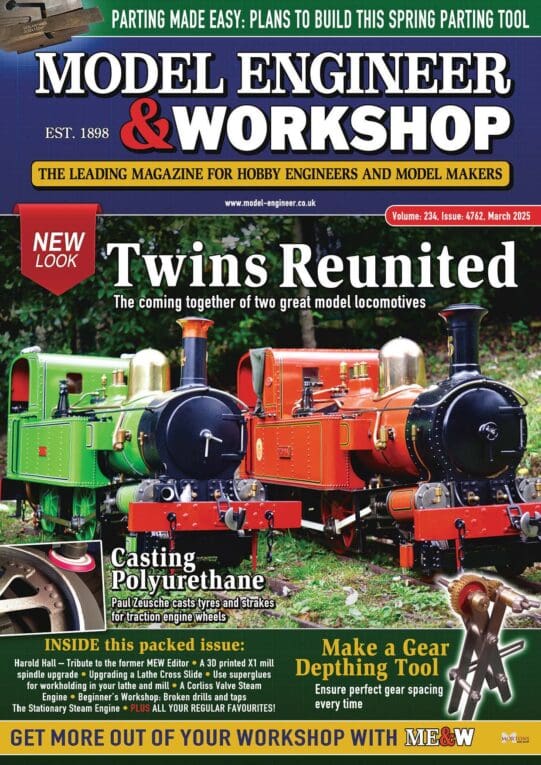Hi SOD (Dave) when it comes to things like this it depends on how honest the description of power is.
No, it depends on how hot things get. I suggest misleading advertising is neither here nor there in this case; yes it annoys when the purchaser thinks he’s buying a 750W OUTPUT motor, when it’s actually rated for 750W INPUT. He’s been conned out of up to 20% maybe, but probably won’t notice the difference and his electricity bill will be lower! Though the difference could be as high as 20% on an inefficient single-phase motor, a good 3-phase motor could be 95% efficient. Very little in it. I hate dishonesty though.
HP is only meaningful as a measure of power output. Sadly, that’s often ignored. Watts are legitimately Input and output, but the blurb should say which, and often doesn’t. I accept the consumer numbers are only indicative, and in truth a few hundred watts either way on my lathe doesn’t matter. Except, I’d rather buy tools from a vendor who clearly states input or output, rather than those who don’t.
Normally the power is output so add losses to 746w/Hp, friction, conversion to mechanical power, heat Etc on top. Then there is the substantial starting current, in this case X 2.
Yes, start-up current could peak as high as 5x normal, maybe 65A for a 13A motor. A 13A fuse will take 65A for about 1/2 second before melting, but starting currents drop rapidly, allowing the fuse to cool off. The UK system is designed to cope with bursts beyond 13A so motors have time to start. 5X assumes the motor has no starter, and motors fitted with them pull less current. Maybe this compressor has one.
A good quality plug and socket may just about take it, but cheap plugs with a poor fuse holder, or the screws in the socket not done up tight will invite trouble.
Agreed about cheap plugs and loose contacts but that’s supposition – we don’t know how good or bad the compressor’s electrics are. And a loose wire in a 3A table lamp will start a fire. In practice, even cheap 13A plugs and sockets are robust enough for a few years hot abuse. I check mine occasionally for brown heat damage and change them because hot plastic goes brittle, and might break. Electric heaters are my main problem, not machines.
…
Are the motors REALLY 2 Hp ? I doubt it. Noel.
Doesn’t matter. If the motors consume less than 1500W, then the electrics run cooler.
Motors aren’t easy to understand! They’re not black and white. Advertising blurb is indicative, and maybe deliberately misleading. What’s on a good motor plate is better, but to understand a motor fully one has to look at the graphs. It’s because heat depends on time and load, not just volts and amps. The duty cycle is important.
Bear in mind that a 1kW output continuous motor can be overloaded to put much more than 1kW on the shaft. The rated output can be exceeded considerably, but only for as long as the insulation stands the heat. A stalled motor will soon emit magic smoke – there is no output keeping it cool.
Too small motors are common whenever a motor only has to run intermittently: this site explains. Waste of money providing an S1 rated motor when a cheap little S2 will do the job.
Based on the compressors advertising, I think it’s marginal at 13A. But unless the operator calls for so much air that the motors run continuously, that’s unlikely to be a problem.
We can hypothesise about the compressor to a point, but neither of us has good data. No graphs, or an understanding of how hard an owner might load one. So if an owner has doubts, measure temperatures with an IR thermometer. Insulation is good for up to, say 180°C, but that’s well out of my comfort zone, so I’d only tolerate less than half that. Personally, I’d run one of these intermittently without worrying, but check if I ran it hard for hours on end.
Heat and power are related. It’s the heat produced by drawing power that causes trouble, and heat isn’t a problem if has time to dissipate, keeping temperatures low.
Domestic UK electrics are adequate for most home workshops, but send for an electrician when lots of machines and lights are installed. Overstressed electrics causes lots of fires.
Dave
SillyOldDuffer.





